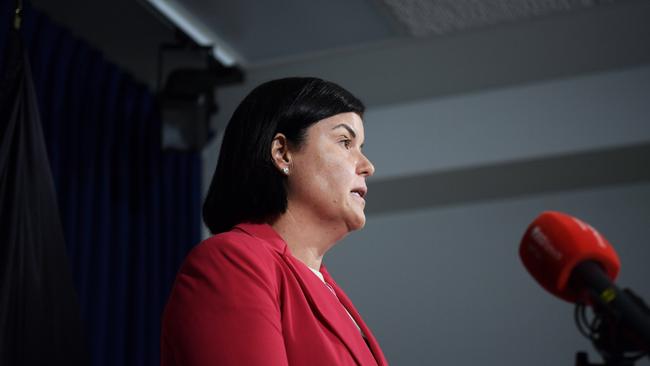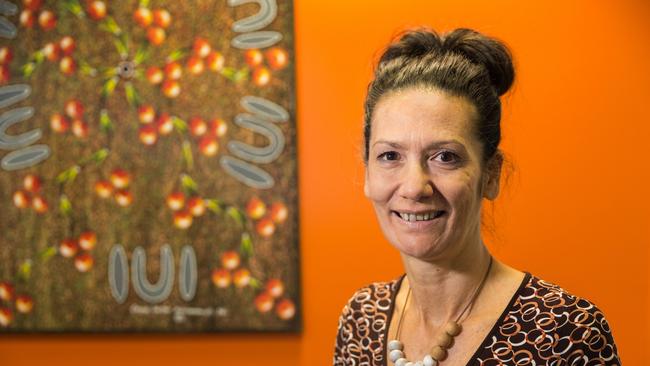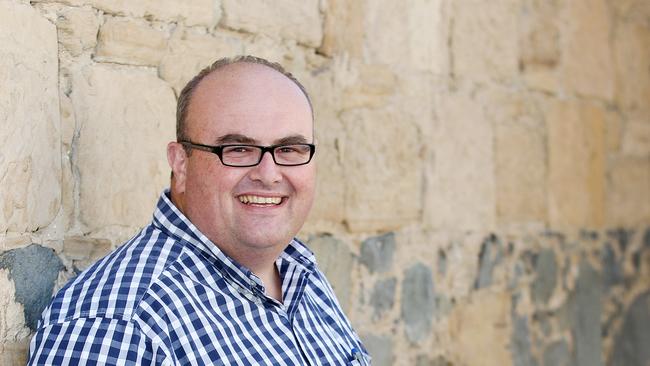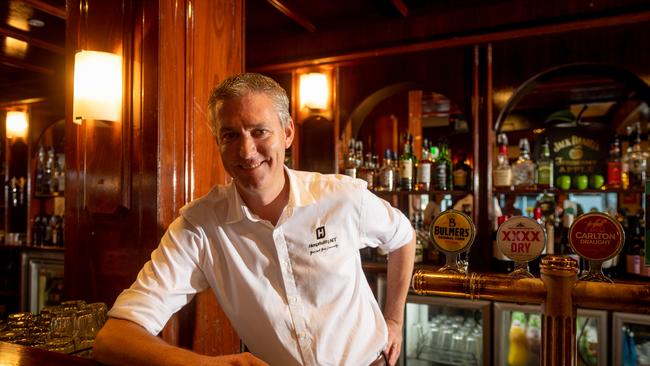Chief Minister Natasha Fyles flags tough decisions on Alice services
The Chief Minister says ‘tough decisions’ could be made on Alice Springs service providers as she promised to support a federal audit.
Northern Territory
Don't miss out on the headlines from Northern Territory. Followed categories will be added to My News.
The Chief Minister has flagged “tough decisions” could be made as the Territory’s service providers are probed.
It comes as the NT government prepares to reinstate dry zones in town camps and communities through new legislation next week.
The Commonwealth will also invest $250m into the region, which Chief Minister Natasha Fyles said would start to flow “immediately”.
“I think we do need to have a harsh look at the services we have,” Ms Fyles said on ABC Radio.

“(Dorelle Anderson) is reviewing the individual services and she’s working at that local Alice Springs, Central Australian level.
“There may be some tough decisions … this is balancing the limited taxpayer resources we have with getting programs that work.
“She certainly will do that in a process that is robust.
“We will then make sure that the funding that’s already allocated is used appropriately as well as new funding agreements using these resources.”
A snap report by Ms Anderson – the newly-appointed regional controller – ordered by Prime Minister Anthony Albanese, was publicly released on Monday.
In it she recommended the government urgently reinstate alcohol bans with “a clear path forward” if a community wants to develop an alcohol management plan.
Ms Anderson also urged the NT and federal governments work together to deliver needs-based funding so that the “cycle of intergenerational trauma and disadvantage can truly begin to be broken.”
Ms Fyles said last week she would be support a Productivity Commission audit if the Territory was given more federal funding.
“I will be very open to accountability around this,” she said.
“We would certainly welcome measures that allow for us to have an understanding of the investment we’re placing and how that is achieving the change we require.”

Central Australian Aboriginal Congress chief executive Donna Ah Chee said the announcements could be “a game changer”.
“Since the expiry in July last year of the Stronger Futures provisions that protected many of our communities, the town has been drowning in rivers of grog,” she said.
“The result has been an explosion of break-ins and, most worrying of all, alcohol-fuelled violence.
“We have been calling very strongly since then for a twofold strategy to address the harm that alcohol is causing for our people.”
Ms Ah Chee said that strategy would involve the immediate reinstatement of alcohol bans and “sustained action on the drivers of destructive drinking” including poverty, education, discrimination and intergenerational trauma.
“(The) joint announcement outlines significant and positive action in both these areas,” she said.

Alongside the $250m federal investment into social issues, Tourism Central Australia chief executive Danial Rochford said “10s of millions of dollars” would be needed to rebuild tourism in the region.
“There needs to be a co-ordinated strategy on Indigenous economic empowerment, similar to how the government has focused on social issues,” he said.
“It is absolutely critical we get behind our Indigenous tourism businesses and this needs to be super charged, especially given the issues we’ve been facing.
“This strikes at the heart of the future of the destination.”

Hospitality industry weighs in on Red Centre liquor restrictions
The Territory’s hospitality industry has welcomed announcements around alcohol management in Alice Springs town camps as a step towards returning to normal trading hours for liquor retailers.
Hospitality NT chief executive Alex Bruce said the industry had previously backed calls for dry areas to be reinstated, saying “local collective decision making needs to be supported”.
“We’re still under the 90 days of additional measures down in Alice, we are still hopeful that they’ll be lifted at the end of those 90 days because we know that they were just a short-term stop gap,” Mr Bruce said.
“Hopefully on the back of today there’s a much stronger focus on demand management and harm minimisation, because without that we’ll just be on this merry-go-round again and again.”
Mr Bruce said a boost in sales on weekends had not made up for losses in trade on Mondays and Tuesdays when Red Centre bottle shops are now forced to close their doors.
“As a short-term measure it’s disrupted the market, which had the desired effect of the policymakers,” he said.
“Over time though, we’ve seen that those diminish as the market really does just shift around the changed hours.”
Mr Bruce said when similar restrictions were introduced in Tennant Creek, it was “a matter of weeks before volume had recovered”.
“So we still anticipate that will happen (in Alice Springs), you get the immediate benefit the first few weeks and then any benefit just tapers off,” he said.
Iris Group Alice Springs chief operating officer Craig Jervis, whose company owns the Todd Tavern and Gap View Hotel bottle-Os, said he also welcomed the announcements but said “unintended consequences” were still a concern.




